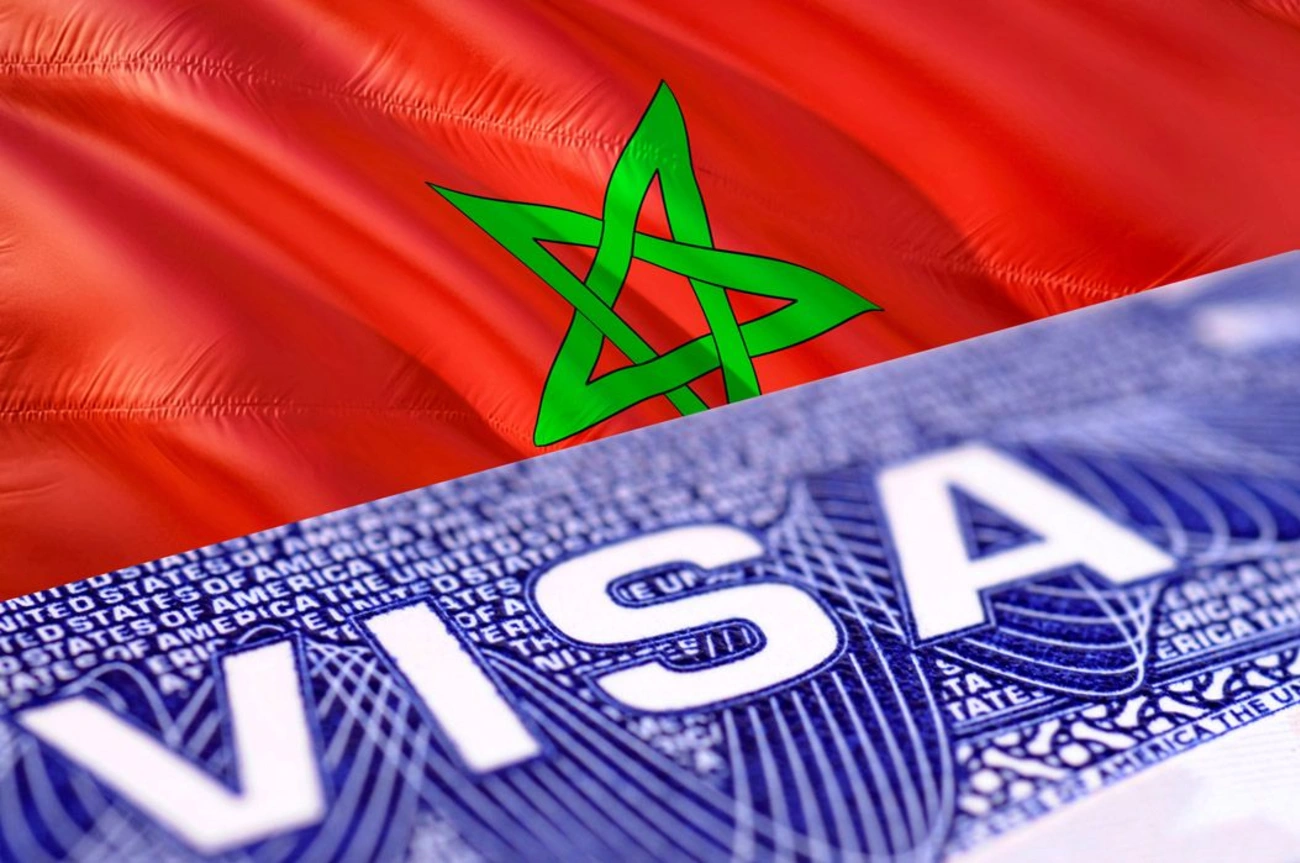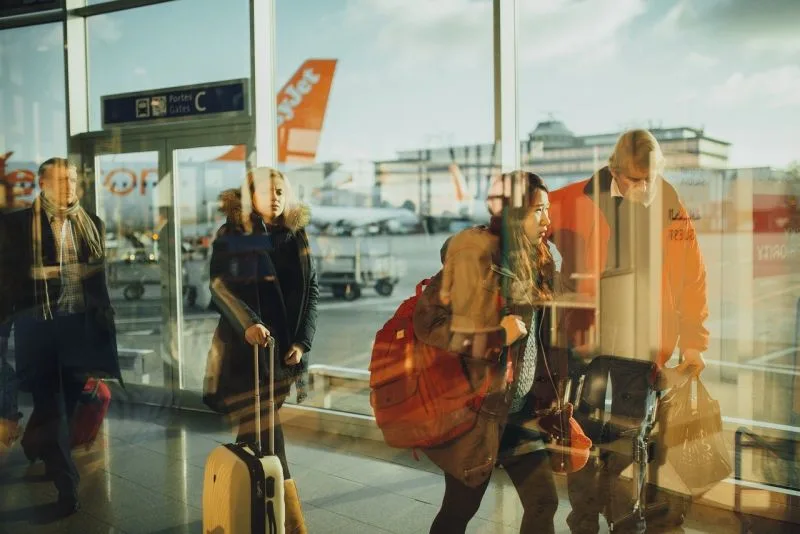Morocco Visas: All You Need to Know

Morocco's visa landscape reveals a captivating paradox that illustrates the complexities of modern global mobility. The Henley Passport Index positions Moroccan citizens at 67th place worldwide, granting them visa-free or visa-on-arrival access to merely 74 destinations as of 2025. This stands in stark contrast to Morocco's own welcoming stance—the kingdom attracted a remarkable 8.8 million international visitors throughout 2024, with European travelers forming the largest contingent.
This guide serves as your trusted companion through Morocco's entry requirements, unraveling the intricacies of visa policies with the precision of a seasoned travel expert. The Moroccan government's introduction of an e-Visa system in July 2022 marked a pivotal shift, streamlining visa issuance for qualifying foreign nationals and opening new pathways for international visitors. Whether you're questioning your visa obligations for Morocco or seeking detailed entry protocols, every aspect of your inquiry finds its answer within these pages.
Your journey through this exploration will illuminate which nationalities face visa requirements, reveal the step-by-step application procedures, and equip you with indispensable travel intelligence for a seamless Moroccan adventure. The guide also examines visa exemptions, a generous policy that permits numerous travelers to experience Morocco for up to 90 days without prior visa arrangements.
Visa Requirements: Morocco's Open Door Policy
Morocco's entry requirements reveal a remarkably welcoming approach to international visitors. The North African kingdom extends visa-free privileges to citizens of over 70 nations worldwide, establishing itself as an accessible gateway for millions of global explorers.
Regional Visa Exemptions: A Global Welcome
Morocco's visa exemption policy spans continents, reflecting the kingdom's diplomatic reach and tourism ambitions. European Union citizens benefit from unrestricted access, while North American travelers from the United States and Canada share this same freedom.
The geographic scope of these exemptions tells a fascinating story of international relations:
- Americas: United States, Canada, Mexico, Brazil, Argentina, Chile, Colombia, Peru, and the Dominican Republic
- Europe: All EU members, the United Kingdom, Switzerland, Norway, Iceland, and microstates like Monaco and San Marino
- Asia-Pacific: Australia, New Zealand, Japan, South Korea, China, Indonesia, Malaysia, Singapore, and the Philippines
- Middle East: UAE, Saudi Arabia, Qatar, Bahrain, Kuwait, and Oman
- Africa: Algeria, Tunisia, Senegal, Gabon, Niger, Burkina Faso, and Togo
Stay Duration: Understanding Time Limits
Morocco's generosity comes with temporal boundaries that vary across nationalities. The standard allowance grants most visa-exempt visitors a 90-day window to explore the kingdom. However, these regulations contain notable variations—Dominican Republic citizens receive 60-day permissions, while visitors from the Maldives face a more restrictive 30-day limit.
Extensions remain possible through formal requests at Moroccan police stations, potentially adding another 90 days to your Moroccan experience.
Electronic Travel Authorization: Morocco's Digital Evolution
Morocco has introduced an Electronic Travel Authorization (AEVM) system that adds a layer of pre-arrival screening for select nationalities. Citizens from Congo, Ghana, Guinea, and Mali currently navigate this requirement, obtaining authorization despite their visa-free status.
Future expansions of this system promise broader application across all visa-exempt countries, with notable exceptions for Moroccan residence permit holders, transit passengers, and spouses of Moroccan citizens. These privileged categories must present appropriate documentation upon arrival.
The "Acces Maroc" portal serves as the official gateway for e-Visa and AEVM applications. Processing typically occurs within 24 to 72 hours, with approved e-Visas maintaining 180-day validity periods and permitting 30-day stays that can be renewed once.
Ready to explore Morocco? From visa guidance to curated Morocco travel packages, we’ll help you plan every step of your journey. Start your adventure today!

Understanding Morocco Visa Requirements
Morocco's entry framework operates on a systematic hierarchy that determines visa obligations based on passport origin and diplomatic status. The architecture of these requirements reveals distinct pathways for different traveler categories, each governed by specific protocols and documentation standards.
Visa Obligations by Nationality
The fundamental principle governing Morocco's visa policy centers on reciprocity and diplomatic relations. Citizens holding passports from nations outside the 70+ visa-exempt countries must secure authorization before departure. The electronic visa infrastructure, operational since July 10, 2022, modernized this process, creating digital pathways for visa-required travelers.
Heightened scrutiny applies to passport holders from Afghanistan, Iran, Iraq, Kosovo, Lebanon, North Korea, Pakistan, Palestine, Syria, Taiwan, and Yemen—these applications undergo specialized review through the Ministry of Interior. This additional layer reflects security considerations and bilateral diplomatic considerations.
Essential Documentation Standards
Morocco enforces universal documentation requirements that apply regardless of visa status. Every visitor must satisfy these entry prerequisites:
- Passport validity extending six months beyond the intended departure
- Designated a blank page for official entry endorsements
- Confirmed return or continuing journey documentation
- Financial sufficiency verification for planned stay duration
- Accommodation confirmation or detailed itinerary
Border control officers retain discretionary authority over final admission decisions, even when proper visas exist. Documentation completeness and travel purpose clarity significantly influence these determinations.
Diplomatic and Official Passport Privileges
Morocco maintains bilateral agreements with over 70 nations, extending visa exemptions to diplomatic, service, and official passport holders. These arrangements create fascinating contradictions; while ordinary passport holders from certain countries require visas, their diplomatic counterparts enjoy unrestricted access. Albania, Bosnia and Herzegovina, and Egypt exemplify this diplomatic privilege structure, where official travel faces no visa barriers despite standard tourist restrictions.
Recent diplomatic initiatives have expanded these exemptions through newly signed agreements with Benin, Madagascar, and Albania, though implementation timelines vary. These accords demonstrate Morocco's evolving diplomatic strategy and its commitment to facilitating official international relations.
Securing Your Moroccan Visa: A Methodical Approach
Obtaining a Moroccan visa demands precision and attention to detail, qualities that distinguish successful applications from rejected ones. The landscape shifted dramatically with the July 2022 launch of the e-Visa system, transforming what was once a cumbersome process into a more accessible pathway for eligible travelers.
Selecting Your Visa Category
Morocco's visa architecture consists of four distinct categories, each tailored to specific travel circumstances. The Short Validity Visa accommodates tourism and business visits lasting up to 90 days. Frequent visitors benefit from the Long Validity Visa, which grants multiple entries across a full year. Travelers merely transiting through Morocco can secure a Transit Visa permitting stays up to 72 hours. Border officials retain discretionary authority to issue visas at entry points during exceptional circumstances.
Document Assembly Requirements
Success hinges upon meticulous preparation of your application portfolio:
- Visa application form completed exclusively in Latin characters
- Passport maintaining validity for at least six months beyond your intended stay
- Two color photographs measuring 4x3cm against a white background
- Accommodation confirmation or detailed travel itinerary
- Bank statements demonstrating adequate financial resources
- Confirmed return or onward travel ticket
- Valid travel insurance coverage
- Appropriate chancery fees for visa processing
Application Submission Pathways
Eligible candidates may submit applications through the official "Acces Maroc" digital platform. Traditional embassy applications remain available at Moroccan diplomatic missions worldwide. Processing timelines vary considerably. E-Visas typically clear within 24-72 hours, while embassy-issued sticker visas require 5-10 working days.
Monitoring Application Progress
The same portal that accepts your submission provides real-time status updates using your unique application number and registered email address. Status indicators include "In Process," "Granted," "Rejected," or "Additional Documents Required".
Avoiding Common Pitfalls
Rejection patterns reveal predictable weaknesses: incomplete documentation, inadequate financial evidence, or vague travel justifications. Accuracy proves paramount; even seemingly minor discrepancies can trigger denials. Verify passport validity extends beyond six months, confirm all information matches exactly, and establish clear connections to your home country. Applications featuring detailed itineraries and explicit travel purposes demonstrate significantly higher approval rates.
Customize Your Dream Vacation!
Get in touch with our local experts for an unforgettable journey.
Plan Your TripEssential Traveler Intelligence for Morocco
Success in Morocco extends far beyond securing proper documentation. Practical wisdom about the kingdom's regulations proves invaluable for every visitor. This knowledge transforms potential complications into seamless experiences across this North African destination.
Overstaying Consequences and Financial Penalties
Morocco enforces strict adherence to authorized stay periods, with violations carrying substantial repercussions. Travelers who exceed their permitted 90-day limit encounter fines, deportation procedures, or prohibition from future entry. The kingdom maintains a standardized penalty structure of 1,100 Dirhams (approximately $110) regardless of overstay duration. Departure following an overstay requires a judicial appearance, fine payment, and police-issued exit authorization.
Legal Pathways for Extended Visits
Travelers seeking prolonged stays possess legitimate options through official channels. Police stations accept extension applications provided you submit requests at least 15 days before your current authorization expires. These extensions accommodate up to an additional 90-day period. Extended residency beyond 90 days necessitates obtaining a Certificat d'Immatriculation through the Bureau des Étrangers.
Cultural Awareness and Safety Protocols
Multiple governments maintain travel advisories recommending heightened vigilance throughout Morocco. The Islamic character of Moroccan society demands respect for established cultural boundaries and religious observances, particularly during Ramadan. Visitors must avoid inappropriate public behavior, respect mosque vicinity noise restrictions, and refrain from photographing government or military installations.
Family Travel and Citizenship Complexities
Moroccan paternal lineage automatically confers citizenship upon children, creating potential travel complications. Local legislation may restrict these children's departure without paternal consent, superseding custody arrangements from other jurisdictions. Dual citizens must recognize that Moroccan nationality takes legal precedence over foreign citizenship throughout their stay.
Conclusion
The intricate tapestry of Morocco's entry requirements now unfolds before you with remarkable clarity. This North African kingdom presents a fascinating study in contrasts—extending generous hospitality to international visitors while its own passport holders navigate a more restrictive global landscape. Your exploration through these visa intricacies has equipped you with the essential knowledge to approach Morocco with confidence and proper preparation.
The foundation of successful Moroccan travel rests upon meticulous preparation and respect for established protocols. Passport validity, documentation completeness, and financial readiness form the cornerstone of hassle-free entry. Should your travel plans evolve during your stay, the legal pathways for extensions stand ready to accommodate your extended exploration of this remarkable destination.
Cultural sensitivity and legal compliance emerge as equally vital companions to your visa preparation. Morocco's rich Islamic heritage and conservative social fabric demand respectful acknowledgment, while specific regulations surrounding dual citizenship and family travel require careful consideration for affected travelers.
Your educational journey through Morocco's visa landscape concludes with a clear roadmap to this extraordinary destination. The administrative requirements, once properly addressed, fade into the background, allowing Morocco's authentic treasures to take center stage. The aromatic spice markets of Marrakech, the blue-washed streets of Chefchaouen, and the Sahara's golden dunes await your discovery—each experience made possible by the thorough preparation you've now mastered.
FAQs
Q1. Do I need a visa to visit Morocco?
It depends on your nationality. Citizens from over 70 countries, including the EU, US, and Canada, can enter Morocco without a visa for stays up to 90 days. However, some nationalities require a visa or an Electronic Travel Authorization (AEVM) before arrival.
Q2. How long can I stay in Morocco without a visa?
Most visa-exempt visitors can stay for up to 90 days. However, there are exceptions. For example, visitors from the Dominican Republic can stay for 60 days, while those from the Maldives are limited to 30 days.
Q3. What documents do I need to enter Morocco?
All visitors must have a passport valid for at least six months from the entry date, one blank passport page, return or onward travel tickets, proof of sufficient funds, and supporting documentation like accommodation bookings.
Q4. Can I extend my stay in Morocco?
Yes, you can apply for an extension at your local police station at least 15 days before your initial stay expires. This extension can grant up to an additional 90 days. For stays exceeding 90 days, you'll need a residence permit.
Q5. What are the consequences of overstaying my visa in Morocco?
Overstaying can result in fines, potential deportation, or future entry bans. The current maximum fine is 1,100 Dirhams (approximately $110), regardless of overstay duration. To exit after overstaying, you must appear before a judge, pay the fine, and obtain an exit permit from the police.







